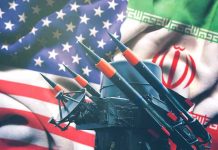
Senator Alex Padilla was forcibly handcuffed and removed from a Homeland Security press conference after attempting to question Secretary Kristi Noem about controversial immigration enforcement actions in Los Angeles.
Key Takeaways
- Democratic US Senator Alex Padilla was forcibly removed and handcuffed at a DHS news conference in Los Angeles, sparking bipartisan condemnation
- Homeland Security officials claimed Padilla engaged in “disrespectful political theatre” and failed to identify himself properly, despite video evidence showing him announcing his position
- The incident occurred amid controversial ICE raids in Los Angeles that have prompted protests and required National Guard deployment
- A federal judge has ordered President Trump to return California National Guard to state control, highlighting tensions between federal and state authority
- The theatrical confrontation exemplifies how political showmanship from both sides has overshadowed substantive discussion of immigration policy
Political Theater Takes Center Stage in Los Angeles
In a dramatic confrontation that quickly escalated to physical restraint, Democratic Senator Alex Padilla was handcuffed and removed from a Department of Homeland Security press conference led by Secretary Kristi Noem in Los Angeles. Video footage shows Padilla attempting to ask questions about immigration enforcement operations that have sparked protests throughout the city. Despite clearly stating, “I’m Senator Alex Padilla, I have questions for the secretary!” security personnel physically restrained him, forced him to the ground, and placed him in handcuffs—an unprecedented treatment of a sitting United States Senator.
The incident occurred as Secretary Noem was holding a press conference to highlight recent ICE operations in Los Angeles, which have been supported by National Guard troops and Marines deployed by President Trump. These enforcement actions have ignited significant civil unrest in a city with a large immigrant population. Rather than engaging with the elected representative of California’s constituents, DHS officials opted for physical removal—a response that has drawn criticism from both political parties and raised serious questions about respect for democratic institutions.
Conflicting Narratives Emerge as Video Evidence Spreads
The Department of Homeland Security quickly defended the actions of its security personnel, claiming that Padilla had engaged in “disrespectful political theatre” and failed to properly identify himself as a senator. This narrative directly contradicts video evidence showing Padilla clearly announcing his position before being restrained. The White House press secretary Abigail Jackson supported this version of events, stating that “Padilla didn’t want answers; he wanted attention.” This dismissive characterization frames legitimate oversight questions from a Senate subcommittee member as mere performance.
“If they can handcuff a U.S. Senator for asking a question, imagine what they will do to you,” said California Governor Gavin Newsom, highlighting the troubling implications of the incident.
Senate Minority Leader Chuck Schumer expressed visceral disgust at the treatment of his colleague, stating, “Watching this video sickened my stomach, the manhandling of a United States Senator, Senator Padilla.” After the confrontation, Padilla was released without arrest and later met with Secretary Noem for approximately 15 minutes. The FBI acknowledged that while “Senator Padilla was not wearing his senate security pin; however, was subsequently positively identified and released,” confirming that his identity as a senator was indeed verified at the scene.
Broader Constitutional Tensions Revealed
This incident is unfolding against a backdrop of significant constitutional conflict between federal and state authorities. A federal judge has recently ordered President Trump to return the California National Guard to state control, challenging the administration’s unilateral deployment of these forces in response to immigration protests. The ruling underscores critical questions about proper state oversight and consent when federal resources are deployed within state boundaries. This standoff between federal enforcement priorities and state governance highlights the complex federalism issues at play in immigration enforcement.
“We are staying here to liberate the city from the socialists and the burdensome leadership that this governor and that this mayor have placed on this country,” declared Secretary Noem, using language that frames federal immigration enforcement as a rescue operation rather than a contested policy implementation.
Padilla, who serves as a senior Democrat on the Senate’s Border Security and Immigration subcommittee, has emphasized that while he supports peaceful protests against the administration’s policies, his primary concern is ensuring that federal agencies respond to legitimate oversight questions from elected representatives. The handcuffing of a senator attempting to exercise this oversight function represents a troubling precedent that places theatrical displays of authority above constitutional processes and democratic norms.











